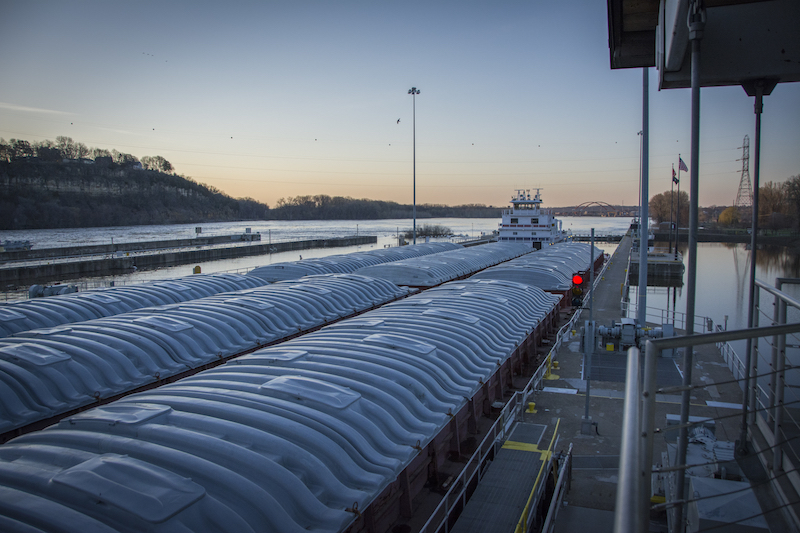The above was one of our headlines in 1993 when we wrote about the epic river flooding that occurred that year.
This year, the flooding has not been quite as bad as 1993, but it has been the longest period of sustained high water in almost 50 years, according to barge industry veterans.
For the first time, tank barge company owner Walter Blessey said that his vessel captains have told him that they have been experiencing anxiety when operating on the Mississippi, Ohio and Illinois rivers.
In the August cover story due out soon, “Flood Zone,” Pamela Glass takes a look at the flooding and high water, caused by a quickening snow melt and persistent rain, and its effect on navigation and the barge industry.
The flooding has touched just about every part of the inland system, creating a backlog of hundreds of barges sitting for months with their cargoes. This has clogged the rivers that are critical for navigation — the rivers that transport grain, petroleum, chemicals and other commodities. Some towboats have not operated for months.
For American Commercial Barge Line, the sustained high water on the Lower Mississippi River and its effect on Gulf barge fleets and terminals has had the biggest impact on the company. This has made local Gulf deliveries very difficult, according to Mark Knoy, president and CEO of the barge operator.
He said that tow size reductions and daytime operating restrictions at some bridges between St. Louis and the Gulf have hurt production and increased costs. “Our 40-barge boats have been limited to 25, which is 60 percent capacity, for six months now,” Knoy told WorkBoat.
ACBL has added more than 20 boats to help combat the bad conditions and deployed larger horsepower boats to meet shipping schedules.
But the industry was doing well before the flooding and will recover.
The health of the industry is good and there is a lot of optimism in the barge industry, said Thomas Allegretti, president and CEO of the American Waterways Operators. Waterways infrastructure is being modernized and companies are making long-term investments in their fleets and training.





